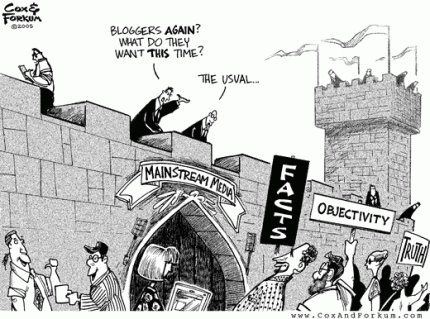
Friendship and learning enriches our lives and make us better human beings. So make sure that you learn the right things and make friends with the right kind of people.
Kelly Sagar.
The quality of your life is the quality of your communication.The Top 200 Secrets of Success and the Pillars of Self-Mastery
This means the way you communicate with others and, more importantly, the way you communicate with yourself.
What you focus on is what you get. If you look for the positive this is what you get.
This is a fundamental law of Nature.

 tive evaluations - a fantastic encouragement.POWERtalking e-magazine - very professional.Extension manual & starter kit - great help in starting a new club.
tive evaluations - a fantastic encouragement.POWERtalking e-magazine - very professional.Extension manual & starter kit - great help in starting a new club.




 in agreement about most things and sparking ideas off each other. The next meeting will take place just before Conference in the Premier Inn, Newcastle City Centre.
in agreement about most things and sparking ideas off each other. The next meeting will take place just before Conference in the Premier Inn, Newcastle City Centre.

Another interesting idea would be to ask members to review specific books – perhaps something that they would not normally read

There are so many new means of communicating on internet -- UTube, My Space, Twitter, Facebook -- as the one celebrates its first birthday, the next is born overnight -- yet blogging is one that seems to remain and to persevere through it all and to hold its own. I see every major newspaper starting up more and more blogs as their resident or invited correspondents air their views, start up debates and comment on current issues, more and more academics and intelligentsia turn to blogging to argue topical issues, every organization or business enterprise realize that this is by far the easiest, the most economical and the most effective way to advertise, inform and communicate their interests; -- and when more inane and seemingly senseless forms of one-liner self-indulgent and nonsensical kind of communication forms pop up -- such as Twitter and even Facebook, and blogging remains the only such format where longer and meaningful debaters and columnists can express their views. I wondered about this remark -- and so went to look at what I wrote about blogging before. The following is from one of my posts about blogging -- read and let me know what you think -- do you agree with the comment that "blogging as very 'last season' and a fairly tiresome means of communicating" I look forward to hearing from you!
 I recently wrote about literary awards for bloggers and how blogging has started to emerge as a recognised form of published literature.
The latest news is that Julie and Julia: 365 Days, 524 Recipes, One Tiny Apartment Kitchen has been named the winner of the inaugural Blooker Prize, beating the major British contender on the shortlist, Belle de Jour, a prostitute's memoirs.
I recently wrote about literary awards for bloggers and how blogging has started to emerge as a recognised form of published literature.
The latest news is that Julie and Julia: 365 Days, 524 Recipes, One Tiny Apartment Kitchen has been named the winner of the inaugural Blooker Prize, beating the major British contender on the shortlist, Belle de Jour, a prostitute's memoirs.
It seems that the majority of internet users out there are still pretty much in the dark as to what exactly a blog and blogging is. As it concerns internet issues, I thought the internet encyclopaedia was the correct source for a definition -- Wikipedia says: A blog (or weblog) is a website in which items are posted and displayed with the newest at the top. Like other media, blogs often focus on a particular subject, such as food, politics, or local news. Some blogs function as online diaries. A typical blog combines text, images, and links to other blogs, web pages, and other media related to its topic. Since its appearance in 1995, blogging has emerged as a popular means of communication, affecting public opinion and mass media around the world.First off, blogs are personal. Almost all of them are imbued with the temper of their writer. This personal touch is much more in tune with our current sensibility than were the opinionated magazines and newspapers of old. The second thing blogs do is - to invoke Marx - seize the means of production. It's hard to underestimate what a massively important medium this has become. For as long as journalism has existed, writers of whatever kind have had one route to readers: They needed an editor and a publisher. Even in the most benign scenario, this process subtly distorts journalism. You find yourself almost unconsciously writing to please a handful of people - the editors looking for a certain kind of story, the publishers seeking to push a particular venture, or the advertisers who influence the editors and owners. Blogging simply bypasses this ancient ritual.
So where did this blogging revolution start? Andrew Sullivan says: "Weblogs Are To Words What Napster Was To Music". In the beginning - say 1994 - the phenomenon now called blogging was little more than the sometimes nutty, sometimes inspired writing of online diaries. Most of the writers called themselves diarists, journalists, journallers, or journalers. A few called themselves escribitionists. These days, there are tech blogs and sex blogs and drug blogs and onanistic teenage blogs. But there are also news blogs and commentary blogs, sites packed with links and quips and ideas and arguments that only months ago were the near-monopoly of established news outlets.Poised between media, blogs can be as nuanced and well-sourced as traditional journalism, but they have the immediacy of talk radio. Amid it all, this much is clear: The phenomenon is real. Blogging is changing the media world and could, I think, foment a revolution in how journalism functions in our culture.
 Think about it for a minute. Why not build an online presence with your daily musings and then sell your first book through print-on-demand technology direct from your Web site? Why should established writers go to newspapers and magazines to get an essay published, when they can simply write it themselves, convert it into a .pdf file, and charge a few bucks per download? Just as magazine and newspaper editors are slinking off into the sunset, so too might all the agents and editors and publishers in the book market.
The original weblogs were link-driven sites. Each was a mixture in unique proportions of links, commentary, and personal thoughts and essays. Many current weblogs follow this original style. Such links are nearly always accompanied by the editor's commentary. An editor with some expertise in a field might demonstrate the accuracy or inaccuracy of a highlighted article or certain facts therein; provide additional facts he feels are pertinent to the issue at hand; or simply add an opinion or differing viewpoint from the one in the piece he has linked. Typically this commentary is characterized by an irreverent, sometimes sarcastic tone. More skilful editors manage to convey all of these things in the sentence or two with which they introduce the link . Indeed, the format of the typical weblog, providing only a very short space in which to write an entry, encourages pithiness on the part of the writer; longer commentary is often given its own space as a separate essay.
Think about it for a minute. Why not build an online presence with your daily musings and then sell your first book through print-on-demand technology direct from your Web site? Why should established writers go to newspapers and magazines to get an essay published, when they can simply write it themselves, convert it into a .pdf file, and charge a few bucks per download? Just as magazine and newspaper editors are slinking off into the sunset, so too might all the agents and editors and publishers in the book market.
The original weblogs were link-driven sites. Each was a mixture in unique proportions of links, commentary, and personal thoughts and essays. Many current weblogs follow this original style. Such links are nearly always accompanied by the editor's commentary. An editor with some expertise in a field might demonstrate the accuracy or inaccuracy of a highlighted article or certain facts therein; provide additional facts he feels are pertinent to the issue at hand; or simply add an opinion or differing viewpoint from the one in the piece he has linked. Typically this commentary is characterized by an irreverent, sometimes sarcastic tone. More skilful editors manage to convey all of these things in the sentence or two with which they introduce the link . Indeed, the format of the typical weblog, providing only a very short space in which to write an entry, encourages pithiness on the part of the writer; longer commentary is often given its own space as a separate essay. These weblogs provide a valuable filtering function for their readers. The web has been, in effect, pre-surfed for them. Out of the myriad web pages slung through cyberspace, weblog editors pick out the most mind-boggling, the most stupid, the most compelling.
By highlighting articles that may easily be passed over by the typical web user too busy to do more than scan corporate news sites, by searching out articles from lesser-known sources, and by providing additional facts, alternative views, and thoughtful commentary, weblog editors participate in the dissemination and interpretation of the news that is fed to us every day. Their sarcasm and fearless commentary reminds us to question the vested interests of our sources of information and the expertise of individual reporters as they file news stories about subjects they may not fully understand.
Towards 2004, the role of blogs became increasingly mainstream, as political consultants, news services and candidates began using them as tools for outreach and opinion forming. Even politicians not actively campaigning began to blog to bond with constituents. Some blogs were an important source of news during the December 2004 Tsunami such as Medicins Sans Frontieres, which used SMS text messaging to report from affected areas in Sri Lanka and Southern India.
Blogs have been seen as archives of human thought. They can provide useful insights to aid in dealing with humanity's psychological problems (such as depression and addiction). And they can also be used to solve crimes. (In 2005, Simon Ng posted a blog entry which identified his murderer.)
Blogs have also had an influence on minority languages, bringing together scattered speakers and learners; this is particularly so with Scottish Gaelic blogs, whose creators can be found as far away from traditional Gaelic areas as Kazakhstan and Alaska. Blogs are also used regularly by other minority language activists. Minority language publishing (which may lack economic feasibility) can find its audience through inexpensive blogging.
These weblogs provide a valuable filtering function for their readers. The web has been, in effect, pre-surfed for them. Out of the myriad web pages slung through cyberspace, weblog editors pick out the most mind-boggling, the most stupid, the most compelling.
By highlighting articles that may easily be passed over by the typical web user too busy to do more than scan corporate news sites, by searching out articles from lesser-known sources, and by providing additional facts, alternative views, and thoughtful commentary, weblog editors participate in the dissemination and interpretation of the news that is fed to us every day. Their sarcasm and fearless commentary reminds us to question the vested interests of our sources of information and the expertise of individual reporters as they file news stories about subjects they may not fully understand.
Towards 2004, the role of blogs became increasingly mainstream, as political consultants, news services and candidates began using them as tools for outreach and opinion forming. Even politicians not actively campaigning began to blog to bond with constituents. Some blogs were an important source of news during the December 2004 Tsunami such as Medicins Sans Frontieres, which used SMS text messaging to report from affected areas in Sri Lanka and Southern India.
Blogs have been seen as archives of human thought. They can provide useful insights to aid in dealing with humanity's psychological problems (such as depression and addiction). And they can also be used to solve crimes. (In 2005, Simon Ng posted a blog entry which identified his murderer.)
Blogs have also had an influence on minority languages, bringing together scattered speakers and learners; this is particularly so with Scottish Gaelic blogs, whose creators can be found as far away from traditional Gaelic areas as Kazakhstan and Alaska. Blogs are also used regularly by other minority language activists. Minority language publishing (which may lack economic feasibility) can find its audience through inexpensive blogging.
 Around the beginning of 2005, amateur blogging took off in a big way. Terms such as 'Alternative media' began to be used for blogging in the mainstream media. Well-informed bloggers soon shot into prominence by sheer ingenuity and clarity of their content. And in the United Kingdom for instance, The Guardian newspaper launched a redesign in September 2005, which included a daily digest of blogs on page two.
These days, most blogs are often updated several times a day, and have become instead a record of the blogger's thoughts: something noticed on the way to work, notes about the weekend, a quick reflection on some subject or another. It is also quite fascinating to see new bloggers position themselves in the weblog community, referencing and reacting to those blogs they read most, their sidebar an affirmation of the tribe to which they wish to belong.
More than that, blogging itself places no restrictions on the form of content being posted. Its web interface, accessible from any browser, consists of an empty form box into which the blogger can type...anything: a passing thought, an extended essay, political or social commentary, a subject he or she wishes to debate, a cause to promote, a childhood recollection, a place where the blogger can give much added information which would be of interest to a potential customer, but which would not be suitable for the business website. The Spectator's blog Coffeehouse, and Got2begreen, a conservation blog are two examples.
Around the beginning of 2005, amateur blogging took off in a big way. Terms such as 'Alternative media' began to be used for blogging in the mainstream media. Well-informed bloggers soon shot into prominence by sheer ingenuity and clarity of their content. And in the United Kingdom for instance, The Guardian newspaper launched a redesign in September 2005, which included a daily digest of blogs on page two.
These days, most blogs are often updated several times a day, and have become instead a record of the blogger's thoughts: something noticed on the way to work, notes about the weekend, a quick reflection on some subject or another. It is also quite fascinating to see new bloggers position themselves in the weblog community, referencing and reacting to those blogs they read most, their sidebar an affirmation of the tribe to which they wish to belong.
More than that, blogging itself places no restrictions on the form of content being posted. Its web interface, accessible from any browser, consists of an empty form box into which the blogger can type...anything: a passing thought, an extended essay, political or social commentary, a subject he or she wishes to debate, a cause to promote, a childhood recollection, a place where the blogger can give much added information which would be of interest to a potential customer, but which would not be suitable for the business website. The Spectator's blog Coffeehouse, and Got2begreen, a conservation blog are two examples.
Find the link to the club website below: